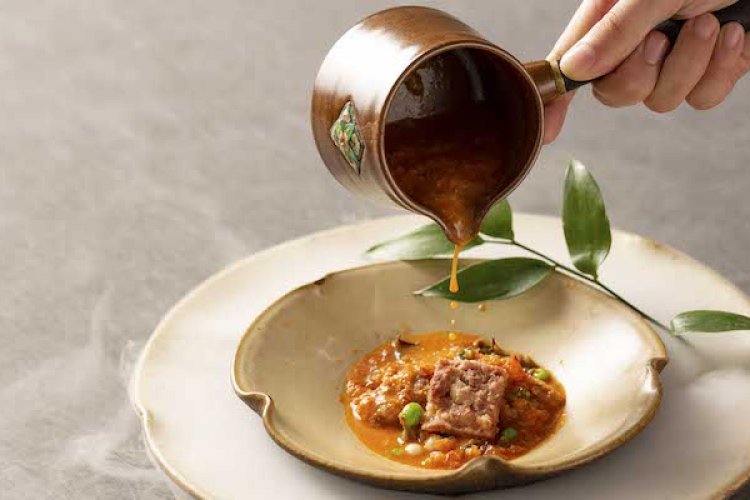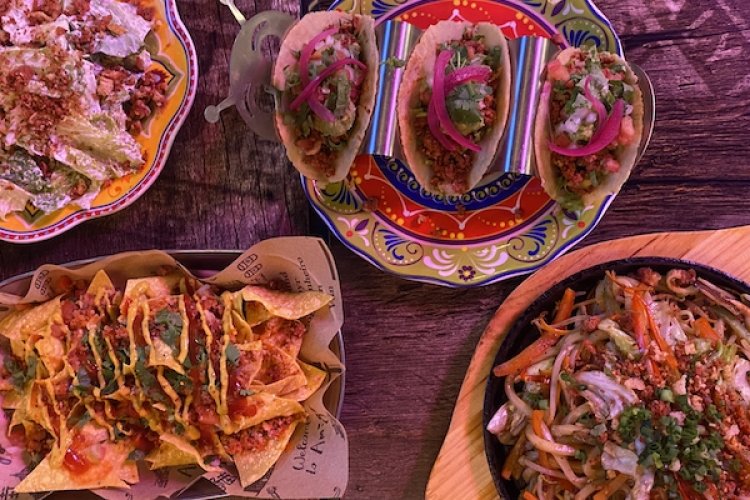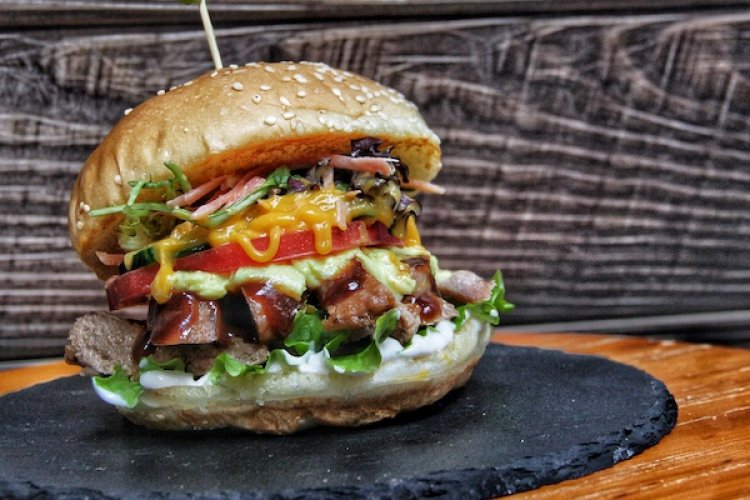2021 Year in Review: The Growth of Beijing’s Plant-Based Scene
The year 2021 has been filled with twists and turns, making us all the more ready to bid it farewell. But Beijing wasn’t too bad of a place to spend the year, so in 2021 Year in Review, we’re taking a look back at the best and worst of times in the capital from this year that was.
There’s little doubt that vegan and vegetarian lifestyles have been putting down roots in Beijing for a number of years now, and 2021 was something of a bumper harvest of sorts, with countless restaurants across the culinary map adding alternative protein dishes to their menus coupled with some high-profile studies, articles, and even controversies about the future of faux-meat in China. So join us, as we navigate the sometimes ripe, sometimes rotten growth of Beijing’s plant-based scene in 2021.
The highs and lows of King’s Joy
To discuss the highs and lows of King’s Joy we actually have to go all the way back to the end of 2020 when, in November of that year, the iconic plant-based fine dining joint became the world’s first vegetarian restaurant to be awarded three Michelin stars. Unfortunately, however, that glory was not to last, because this past June the company’s official Weibo account posted a comment that read, “不吃素的人品味素质修养都很差 应该都没有家里人吧 bù chīsù de rén pǐnwèi sùzhì xiūyǎng dōu hěn chà yīnggāi dōu méiyǒu jiālǐ rén ba,“ which roughly translates to, "all meat-eaters are not cultured, have bad taste, and probably have no one left in their family.”

Met with equal parts confusion and fury upon being posted, the comment was followed up a number of hours later with an official statement from King’s Joy, explaining that their account had in fact been hacked by a malicious individual who used a loophole in their Weibo account to post as the company. That announcement was subsequently followed by an apology and admission of guilt from the alleged hacker. Nevertheless, the damage had been done, as netizens began crying foul and lobbing all manner of criticism at the eatery, ranging from its high prices and use of dry ice to past ill-advised campaigns.
New menu additions, from int’l chains to local faves
When our column Veg-Jing Out initially launched in 2020 we assumed it would be published once or twice a month. Frankly, there just wasn’t that much happening in the F&B scene or industry at large to warrant more. However as 2021 began to chug along, we quickly found ourselves all but outpaced by plant-based news. From international conglomerates to local faves, just about every week was marked by a new menu addition or offering in the capital.

It began with domestic fast-food chain Dicos, which announced its plans in January to not only add a vegan egg option to seven of their breakfast items at more than 500 stores across China but fully replace those items with the plant-based alternative, meaning real eggs were being wholly ditched in favor of their mung bean brethren. Then, a few weeks later the 24-hour chain Jin Ding Xuan announced that they would be partnering with US-based juggernaut Beyond Meat to introduce a slew of new dishes including West Lake beef soup and Yin burning noodles at all 18 of their Beijing locations. Luxury ice cream brand Magnum was the next to enter China’s market when they released their vegan chocolate almond ice cream bar on Taobao for a more eye-watering than mouthwatering price of RMB 145 back in May. Of course, it was only a matter of time before Beyond Meat – who had already made plenty of inroads with Beijing’s restaurants at that point – launched their flagship e-commerce store on JD.com, which happened in July. And who could forget November’s news that Fatburger, the only international chain to place in the top 12 of our esteemed 2021 Burger Cup, would be bringing a plant-based patty into the fold.

On the local level, Shanghai-based alternative meat purveyors Zrou had a monumental year, striking up partnerships with restaurants all across the capital including Mexican staple Pebbles, Japanese-Mexican fusion Amiga as well as its Izakya neighbor man-Chang, the already famed vegetarian restaurant Blossom Vegetarian, Italian joint Panino Teca, the German-inspired Bloomberg, North African-Middle Eastern-Mediterranean catch-all La Medina, and fan favorites Moka Bros and The Local. There were also menu expansions at Tube Station, Arrow Factory, Kakikopi, and Peach by Hulu, as well as the opening of Miao Veggie Space, the capital’s newest plant-based fine dining establishment. Simply put, it was an absolutely bonkers year for vegan and vegetarian eating.
Chinese vegans earn coveted Annoying Vegan badge
There’s a joke in the West (maybe it’s told elsewhere, I’m not entirely sure) that basically goes like this;
- Person 1: “How do you know if someone is vegan?”
- Person 2: “I don’t know, how?”
- Person 1: “Don’t worry, they’ll tell you.”
The punchline being, vegans, and to a somewhat lesser extent, vegetarians, are a preachy bunch who can’t shut the hell up about their dietary choices.
Well, in December two of China’s celebrities-turned-vegan activists, Zhang Jingchu and Tao Hong, became the butt of that joke when they released a 45-minute video touting the benefits of a vegetarian lifestyle and claiming that eating meat is “cruel and unnecessary.” Of course, the country’s carnivores didn’t take too kindly to being called cruel and thus a torrent of backlash was unleashed, with responses ranging from a strict plant-based diet is actually unhealthy to dietary habits are a personal choice not to be judged or derided.
However, the most biting retort definitely came from Shen Yi, deputy director of Fudan University Cyberspace Research Center, who told the Global Times that the “star’s calls for a vegetarian lifestyle represent ‘blind worship’ of Western values and views.” Rest assured, we have zero interest in wading into this debate, but suffice it to say that once a group of vegans has achieved notoriety for being pushy, preachy, and all together off-putting (mind you, this editor lives a plant-based life) it’s safe to assume the movement has gained some level of legitimacy – thousands of years of Buddhist dietary traditions notwithstanding.
Having said all of that, this year also saw the release of a study from multinational market research firm Ipsos on the trajectory of China’s alternative meat industry over the next few years and by all accounts, it’s set to boom, with growth expected to rise some 200 percent to the tune of USD 1.7 billion over the next four years. Incidentally, the same study said that “In China, plant-based meats are increasingly on-trend with celebrity endorsements and links to health and sustainability,” so I guess we’ll bite our tongue on this one for now.
READ: 2021 Year in Review: New Restaurant Openings
Images: King's Joy, Unilever, Zrou







